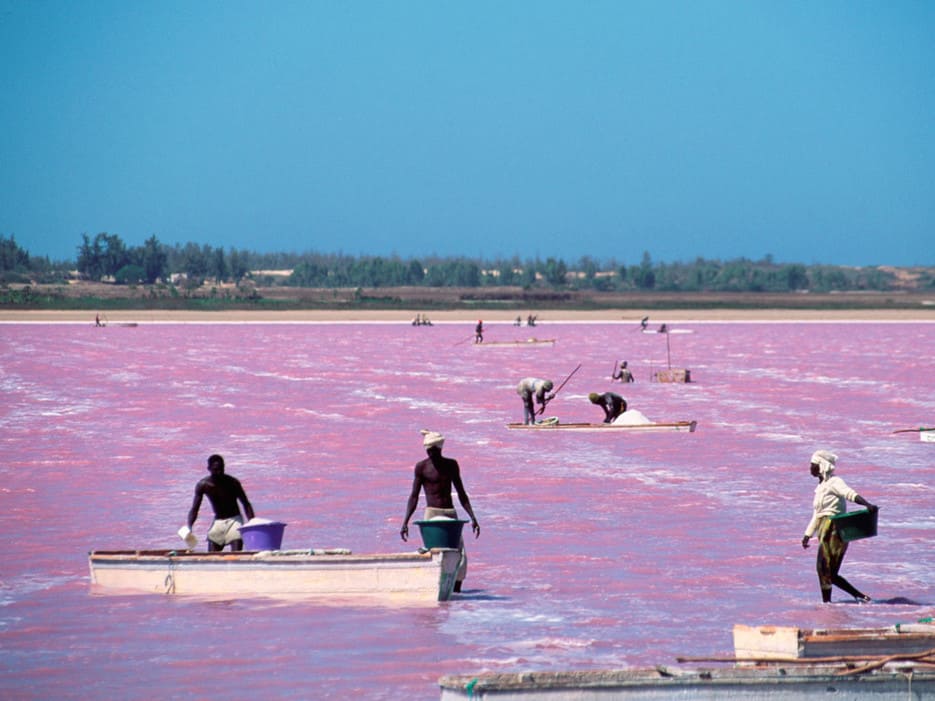Politics and Society
Twitter campaign takes on media stereotypes about Africa
Thousands of Twitter users have taken it upon themselves to change the stereotypes about Africa portrayed in popular media…one tweet at a time
Published
11 years agoon

If you’re reading this, then you’re well aware of the images global media has historically tended (and still does) to associate with Africa: emaciated children, drought, blade-wielding combatants in civil war, AIDS patients and other imagery reinforcing the old ‘dark continent’ narrative.
Many Africans who know the truth are fighting this image. Since its massive spread last month, the hashtag #TheAfricaTheMediaNeverShowsYou has attracted over 42,000 tweets. The tweets are usually accompanied by breathtaking, poignant and spectacular images of the African landscape, people and wildlife. The images show the achievements of well-known Africans and, also, the ingenuity and innovative nature of ‘ordinary’ African folk.
Diana Salah, who helped spread the campaign’s popularity, told Fusion magazine last week that for her the campaign was to remove people’s shame towards the continent from the general stereotypes about Africa.
“I got involved because growing up I was made to feel ashamed of my homeland, with negative images that paint Africa as a desolate continent,” she said.
https://twitter.com/delciate/status/617960523754139648
Lagos Fashion and Design Week 2014, Nigeria (Photos: Insignia) #BeautifulNigeria #TheAfricaTheMediaNeverShowsYou pic.twitter.com/f94yDSxSrA
— NTA News (@NTANewsNow) July 1, 2015
Such a great hashtag: #TheAfricaTheMediaNeverShowsYou
Photo ht @SiphileHlwatika Drakensberg Mountains, South Africa pic.twitter.com/KBGUQze3LM
— Femi Oke (@FemiOke) July 6, 2015
Advertisement
Essaka do dindi dauphins yi? RT @nyeusi_waasi: the Amazing pink lake in senegal #TheAfricaTheMediaNeverShowsYou pic.twitter.com/9whzCrYxF4
— Pitō 🇸🇳⭐️ (@MariaLacouture) July 3, 2015
The continent – with all its diversity, complexities and development – tends to be summarised as one country with a homogenous society suffering under the affliciton of disease and a bloodthirsty dictator. It’s no wonder that a grown woman can declare, on television, that she got infected with HIV while erroneously thinking that “Africans could catch AIDS“.
“It’s so important to showcase the diversity & beauty of Africa and with mainstream media not up for the task, social media was the perfect outlet.#TheAfricaTheMediaNeverShowsYou will continue to promote a positive image and also change misconceptions along the way,” Salah said.
Of course, the popularity of the hashtag has moved from Twitter to Instagram with users sharing images of beautiful moments which are uniquely African.
It’s refreshing to see Africans taking control of how they want to see themselves and also how they want to be seen. For too long have some of our people bemoaned the continents’s portrayal in mass media without doing anything to change it. As we have seen in some of the major political revolutions of the past few years, change can indeed happen – 140 characters at a time.
You may like


Black Panther in the classroom: how Afrofuturism in a film helped trainee teachers in South Africa


What Queen Elizabeth II’s funeral can teach us about the value of cultural continuity


Is the English Premier League close to its first African head coach?


Ghana’s dream of a Pan-African Heritage Museum


UCT remains top in Africa


A Kenyan school founded on Ubuntu and Afrocentrism
